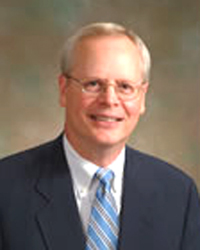As I cannot listen to Mark this weekend, I am listening right now to his sermon entitled “Faith and the Future” from 1996. I found this sermon by downloading a list of almost 600 sermons in a word document and searching it using my wordprocessor. The passage is James 4:13-5:11 which I intend to cover in my sermon on Sunday.
It is a great sermon, and I can see why Mark is friends with CJ. In the sermon he quotes from two sources which do much to undermine our foolish pride:-
First, John Da La Grange who died in 1402 had the following written on his tombstone- “SO MISERABLE ONE why are you proud you are only ash and will revert as we have done to a stinking cadavar food and titbits for worms and ashes”!
Second a poem by John Knox:-
“Oh, Why Should the Spirit of Mortal Be Proud?”
- Oh, why should the spirit of mortal be proud?
- Like a swift-flitting meteor, a fast-flying cloud,
- A flash of the lightning, a break of the wave,
- He passeth from life to his rest in the grave.
- The leaves of the oak and the willow shall fade,
- Be scattered around, and together be laid;
- As the young and the old, the low and the high,
- Shall crumble to dust and together shall lie.
- The child that a mother attended and loved,
- The mother that infant’s affection who proved,
- The husband that mother and infant who blessed,-
- Each, all, are away to their dwellings of rest.
- The maid on whose brow, on whose cheek, in whose eye,
- Shone beauty and pleasure,-her triumphs are by;
- And alike from the minds of the living erased
- Are the memories of mortals who loved her and praised.
- The hand of the king, that the scepter hath borne;
- The brow of the priest, that the mitre hath worn;
- The eyes of the sage, and the heart of the brave,-
- Are hidden and lost in the depths of the grave.
- The peasant, whose lot was to sow and to reap;
- The herdsman, who climbed with his goats up the steep;
- The beggar, who wandered in search of his bread,-
- Have faded away like the grass that we tread.
- The saint who enjoyed the communion of heaven,
- The sinner who dared to remain unforgiven,
- The wise and the foolish, the guilty and just,
- Have quietly mingled their bones in the dust.
- So the multitude goes, like the flower or weed,
- That withers away to let other succeed;
- So the multitude comes, even those we behold,
- To repeat every tale that has often been told.
- For we are the same things our fathers have been;
- We see the same sights our fathers have seen;
- We drink the same stream, we feel the same sun,
- And run the same course our fathers have run.
- The thoughts we are thinking our fathers did think;
- From the death we are shrinking our fathers did shrink;
- To the life we are clinging our father did cling,
- But it speeds from us all like the bird on the wing.
- They loved,-but the story we cannot unfold;
- They scorned,-but the heart of the haughty is cold;
- They grieved,-but no wail from their slumbers will come;
- They joyed,-but they tongue of their gladness is dumb.
- They died,-ah! they died;-we, things that are now,
- That walk on the turf that lies over their brow,
- And make in their dwellings a transient abode,
- Meet the changes they met on their pilgrimage road.
- Yea, hope and despondency, pleasure and pain,
- Are mingled together in sunshine and rain:
- And the smile and the tear, the song and the dirge,
- Still follow each other like surge upon surge.
- ‘Tis the wink of an eye; ’tis the draught of a breath
- From the blossom of health to the paleness of death,
- From the gilded saloon to the bier and the shroud;
- Oh, why should the spirit of mortal be proud?
- William Knox












